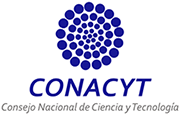A walk-through Tijuana: an ethnographic reflection on the daily life and the migrants’ caravans’ impact in Tijuana, Baja California, México
DOI:
https://doi.org/10.20983/decumanus.2022.2.1Palabras clave:
Border studies, Ethnography, TijuanaResumen
The following article presents an ethnographic and urban reflection focused on the daily life and the main problems including: the impact of the Migrant Caravans, and the lifestyle observed in Zona Norte of Tijuana during the years 2018 – 2021. Furthermore, the article discusses other important issues such as: the COVID-19 pandemic impact, and the historical socio-cultural patterns developed to survive the economic inequality conditions in Tijuana. Methodologically, the article utilized a qualitative approach based on fieldwork experience including participant observation, and multiple interviews conducted with residents and workers during my visits to Tijuana, Baja California, México between 2018 – 2021. The conclusions of this article present a reflection to understand and to make visible the living conditions of the migrants, the efforts provided by one Migrant organization and the unique lifestyle and contemporary urban problems developed in the border city of Tijuana.
Descargas
Citas
Anthony Faramelli, D. H., Robert G. White (2018). Spaces of Crisis and Critique Heterotopias Beyond Foucault. Bloomsbury Publishing.
Bourgois, P. (1998). In search of respect selling crack in El Barrio. Cambridge University Press.
Campbell, H. (2009). Drug war zone: Frontline dispatches from the streets of El Paso and Juárez. University of Texas Press.
Campbell, H. (2021). Downtown Juarez. Underworlds of Violence and Abuse. University of Texas Press.
Hemmingson, M. (2008). Zona Norte: The post-structural body of erotic dancers and sex workers in Tijuana, San Diego and Los Angeles: An auto/ethnography of desire and addiction. Cambridge Scholars Publishing.
Kottak, C., Kathryn Kozaitis. (2012). On Being Different. Diversity & Multiculturalism in North American Mainstream. Mc Graw Hill.
Kun, J. & Montezemolo, F. (2012). Tijuana dreaming. Duke University Press.
Roland, L. K. (2010). Cuban color in tourism and La Lucha: An ethnography of racial meanings. Oxford University Press.
Steven, G. (2014). The devil behind the mirror. University California Press.
Vazquez, V. M. & Morales, S. A. (2021). Surviving “La Lucha” in Ciudad Juárez. An anthropological reflection on the Cuban community in Ciudad Juárez, México. DECUMANUS, núm. 6, 59-73. https://doi.org/10.20983/decumanus.2021.1.4
Vazquez, V. (2018). Análisis antropológico del modelo de desarrollo y la desigualdad social, política y económica de Puerto Rico. DECUMANUS, núm. 3. https://erevistas.uacj.mx/ojs/index.php/decumanus/article/view/2
Vivanco, L. A. (2016). Field Notes: A Guided Journal for Doing Anthropology. Oxford University Press
Newspaper Articles
Abbott, J. (2021, July 29). Guatemalan protestors demand resignation of President Giammatei. Aljazeera. https://www.aljazeera.com/news/2021/7/29/guatemalan-protesters-demand-resignation-of-president-giammattei
Ontiveros, E. (2018, July 19). Daniel Ortega, el revolucionario que liberó Nicaragua y al que acusan de convertirse en el tirano que ayudó a derrocar. BBC News. https://www.bbccom/mundo/noticias-america-latina-44884154
Palmer, E. & Semple, K. (2021, March 23). A damning portrait of Presidential corruption, but Hondurans sound resigned. The New York Times. https://www.nytimes.com/2021/03/23/world/americas/honduras-juan-orlando-hernandez-drug-trial.html
Russell, J. (2011, October 4). Dole settles Nicaragua lawsuits. Los Angeles Business Journal. https://labusinessjournal.com/news/2011/oct/04/dole-settles-nicaragua-lawsuits/
Sherman, C. (2021, July 5). Nayib Bukele, el polémico y populista líder de El Salvador. The San Diego Union-Tribune. https://www.sandiegouniontribune.com/en-espanol/noticias/story/2021-07-04/nayib-bukele-el-polemico-y-populista-lider-de-el-salvador
Photos
Photos taken by Dr. Víctor Vázquez during fieldwork conducted in Tijuana during spring-summer 2021.
Publicado
Cómo citar
Número
Sección
Licencia
Derechos de autor 2022 DECUMANUS. REVISTA INTERDISCIPLINARIA SOBRE ESTUDIOS URBANOS

Esta obra está bajo una licencia internacional Creative Commons Atribución-NoComercial-CompartirIgual 4.0.











